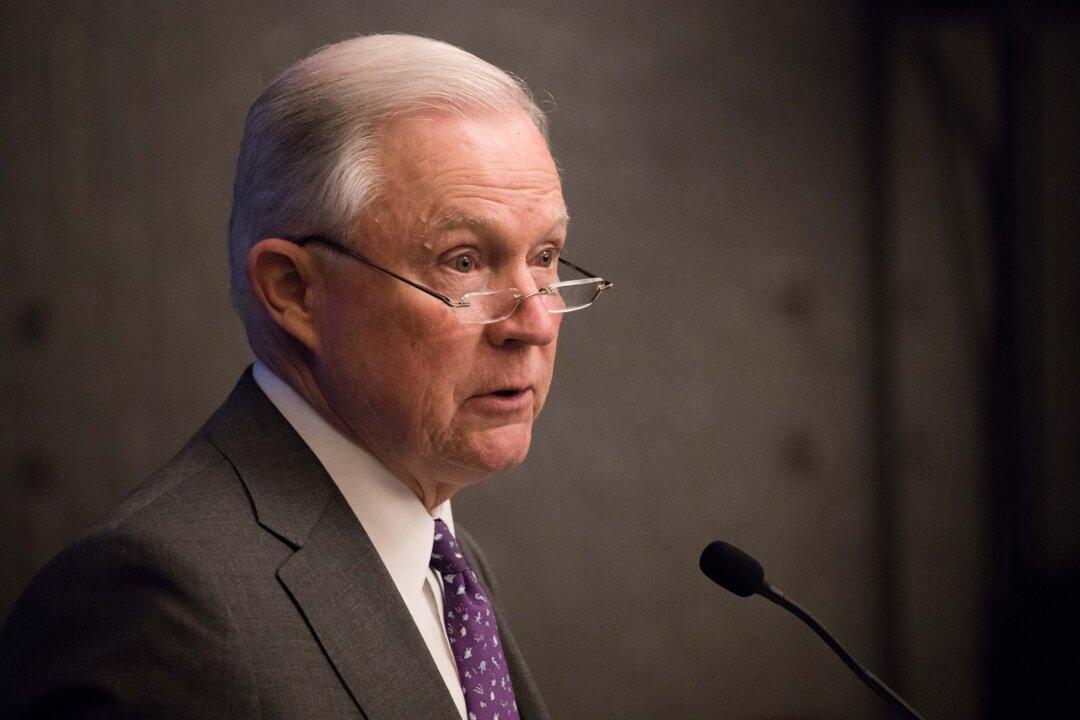Attorney General Jeff Session pushed back against judicial activism and encroachment on the Executive Branch in his Oct. 15 speech to the Heritage Foundation.
Federal judges have been increasingly usurping power from the Executive, Sessions said.


Attorney General Jeff Session pushed back against judicial activism and encroachment on the Executive Branch in his Oct. 15 speech to the Heritage Foundation.